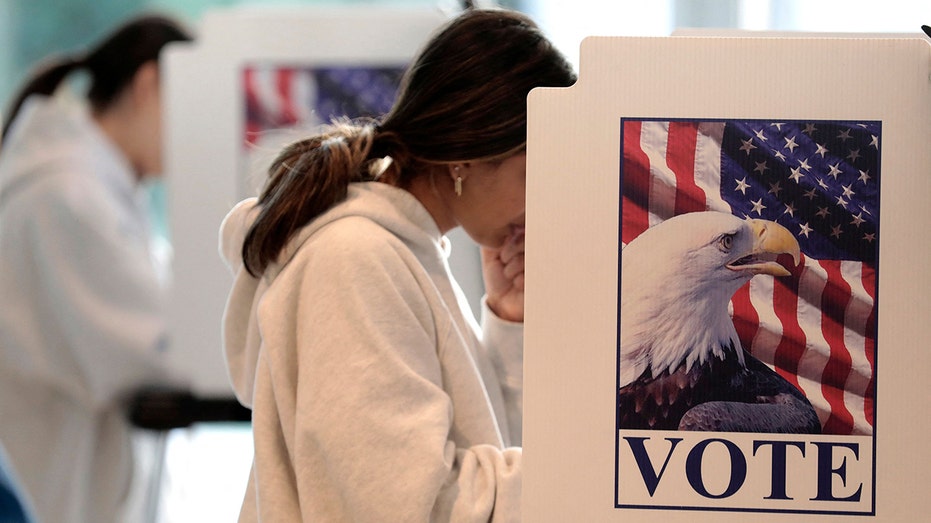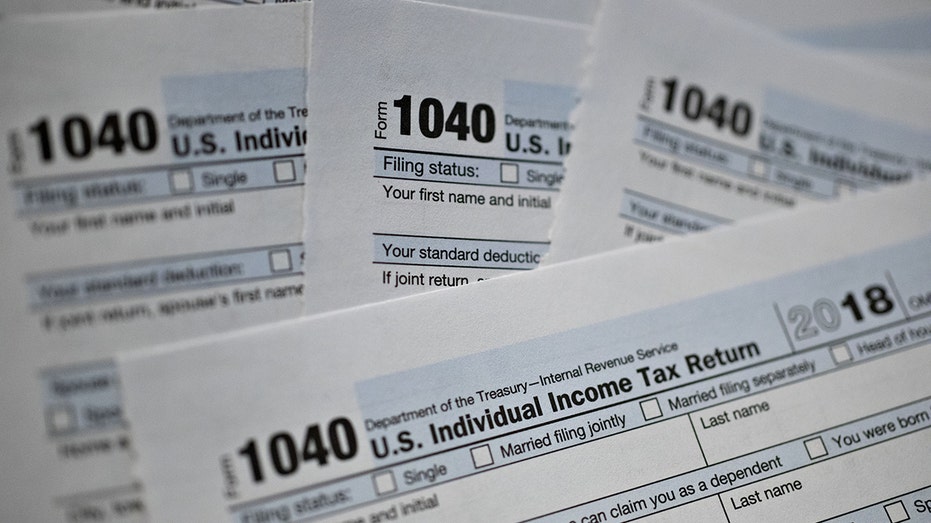Midterm elections could bring higher taxes in some states: What voters need to know
Massachusetts, California weigh tax-the-rich initiatives during midterm elections
White House disputes recession fears ahead of midterm elections
GOP Iowa Rep. Ashley Hinson and Heritage Foundation research fellow E.J. Antoni react to President Biden touting his economic record on "The Evening Edit."
As Americans head to the polls for the pivotal midterm elections, all eyes are on whether Republicans or Democrats will win the battle for Congress.
But residents in some states will have to decide whether to enact major tax policy changes, including hiking rates paid by the richest Americans.
Here is a look at some of the biggest tax changes on the ballot this year.
California
Rich Americans living in California could see their already steep taxes soar even higher if voters approve a controversial tax-the-rich ballot measure on Tuesday.
The measure, Proposition 30, would hike taxes by 1.75% on those earning $2 million per year, generating up to $5 billion in new revenue annually. The bulk of that money would go to programs that help people buy electric cars and install charging stations. A smaller portion would go toward wildfire prevention efforts.

People cast early ballots for the midterm election at the University of Michigan Museum of Art on Nov. 7, 2022. (Jeff Kowalsky/AFP via Getty Images / Getty Images)
Proponents of the measure have said it could help facilitate the clean vehicle transfer that Gov. Gavin Newsom, a Democrat, has so vehemently pushed for as California – the largest new car market in the country – tries to shift away from gas-guzzling vehicles that are one of the main culprits of climate change. Newsom does not support the tax.
Should the tax pass, wealthy Californians would see the top marginal rate on their wage income climb to 16.15%. California already has the highest income tax in the country, with a top rate of 13.3% for those earning more than $1 million.
On top of that, the proposition does not include a carve-out for married couples, meaning that the extra 1.75% excise tax would kick in at $2 million for both single and joint filers, creating a so-called "marriage penalty," according to the Tax Foundation, a nonprofit group that advocates for lower taxes.
Colorado
In Colorado, Proposition FF would raise income taxes for people with a federal taxable income of $300,000 or more by limiting state itemized or standard deductions to $12,000 for single filers and $16,000 for joint filers.
Legislation enacted earlier this year already requires state residents with taxable income of $400,000 or higher to add back itemized or standard deductions over $30,000. The initiative that will appear on Tuesday's ballot would further tighten those deductions, according to the Tax Foundation.

A view of Colorado Springs (iStock / iStock)
Missouri
In Missouri, Amendment 3 would allow adults in the state to purchase and possess up to three ounces of marijuana. They could also grow up to six flowering plants at home.
The proposal would impose a 6% tax on the retail price of recreational marijuana if it passes.
Massachusetts
In Massachusetts, voters will decide on Tuesday whether to pass a measure that would create a 4% tax on annual income above $1 million. That would be on top of the state's 5% flat income tax, also starting in 2023.
Under the so-called Fair Share Amendment, millionaires would essentially pay a combined top marginal tax rate of 9%, thus eliminating the state's more than 100-year history of having a flat-rate individual income tax.
While proponents of the law have framed it as an effort to ensure the wealthy pay their fair share, critics have warned the levy could have negative economic consequences, including hitting small business owners.

IRS 1040 individual income tax forms (Daniel Acker/Bloomberg via Getty Images / Getty Images)
The Tax Foundation estimated that the higher tax on wealthy Americans could actually shrink economic activity in the state by $6 billion by the end of 2025.
"As long as there are alternative markets or ways to shift economic activity to a more competitive state, the surtax is likely to underperform revenue projections and overperform in its malignancy," the group said. "One reason for this is that the graduated income tax would be paid by many small businesses, in addition to wealthy individuals."





















